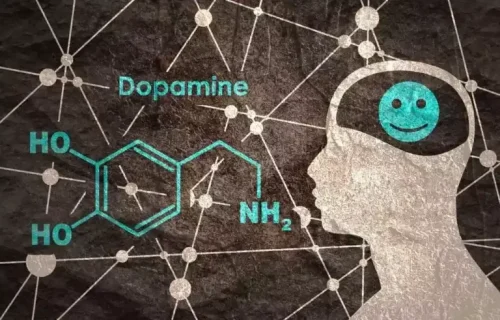Addiction Relapse: Risk Factors, Coping & Treatment Options

You’ll soon start receiving the latest Mayo Clinic health information you requested in your inbox. If you are experiencing a medical emergency and need immediate care, call 911. When an addicted person acts on their craving, a surge of neurotransmitters causes them to feel pleasure. Addiction is a disease that causes imbalances in the brain’s neurotransmitter (chemical messenger) systems. Affected neurotransmitter systems include the serotonin, opioid, and dopamine systems. American Addiction Centers (AAC) is committed to delivering original, truthful, accurate, unbiased, and medically current information.
Patient Care Network
The path to sobriety is a long and difficult journey, and the process is different for everyone. While some may never relapse, others may relapse several times at some point during recovery. At American Addiction Centers, we offer a 90-Day Promise that gives you https://ecosoberhouse.com/ 30 additional days of complimentary treatment if you relapse after 90 consecutive days at one of our facilities. Whether you are going to rehab for the first time, or have relapsed in the past, we will work with you to find the best treatment plan for you.

Cognitive Therapy and Relapse Prevention
Over the years, additional research has confirmed that the steps described by Gorski and Miller are reliable and valid predictors of alcohol and drug relapses. It is estimated that more than 90% of those in recovery have at least one relapse before they achieve lasting sobriety. During this stage, a person may not be thinking about using drugs or alcohol, but their emotions may be placing them in jeopardy of relapse. Read more to learn about types and stages of relapse in addiction, as well as relapse prevention strategies. The challenge of this stage is to essentially develop and maintain healthy life skills that will serve you for a lifetime.

Support for Me and My Family

With a relapse, the situation can become dire because of the shame and guilt, particularly if it’s not dealt with early on. Twelve-step groups include Alcoholics Anonymous (AA), Narcotics Anonymous (NA), Marijuana Anonymous (MA), Cocaine Anonymous (CA), Gamblers Anonymous (GA), and Alcohol Relapse Adult Children of Alcoholics (ACA). Every country, every town, and almost every cruise ship has a 12-step meeting. There are other self-help groups, including Women for Sobriety, Secular Organizations for Sobriety, Smart Recovery, and Caduceus groups for health professionals.
- It involves discovering emotional vulnerabilities and addressing them.
- Think about things that led to or worsened this relapse and how to remove them from your life.
- Cravings occur because the human brain has remarkable powers of association.
- Mindfulness training, for example, can modify the neural mechanisms of craving and open pathways for executive control over them.
Relapse Is Not a Failure
We usually experience setbacks along the way, learn from them, and then keep going. Matching the right therapy to the individual is important to its success. It may also be helpful to determine whether the treatment will be adapted to meet changing needs as they arise. Given the diverse biological processes that contribute to AUD, new medications are needed to provide a broader spectrum of treatment options. Some people are surprised to learn that there are medications on the market approved to treat AUD.
Relapse Prevention and the Five Rules of Recovery
The NIAAA Alcohol Treatment Navigator can help you connect patients with the full range of evidence–based, professional alcohol treatment providers. But a relapse, sometimes called a “slip,” doesn’t begin when you pick up a drink or a drug. It is a slow process that begins long before you actually use. The steps to relapse are actually changes in attitudes, feelings, and behaviors that gradually lead to the final step, using a drink or a drug. As individuals continue to drink alcohol over time, progressive changes may occur in the structure and function of their brains. These changes can compromise brain function and drive the transition from controlled, occasional use to chronic misuse, which can be difficult to control.
- It keeps people focused on the problem more than the solution.
- Choose to get help, even though shame often deters people from doing so.
- When a person then relapses on opioids, they take the same increased amount of opioids as they had before and the body isn’t ready to process that amount of drugs.
- If a person uses as much of the drug as they did before quitting, they can easily overdose because their bodies are no longer adapted to their previous level of drug exposure.
- Learn how to find higher quality, science-backed alcohol treatment to raise your changes for success.
- Prolonged stress during childhood dysregulates the normal stress response and can lastingly impair emotion regulation and cognitive development.
Growth stage

- Data:
- Sober living

Deixe sua resposta